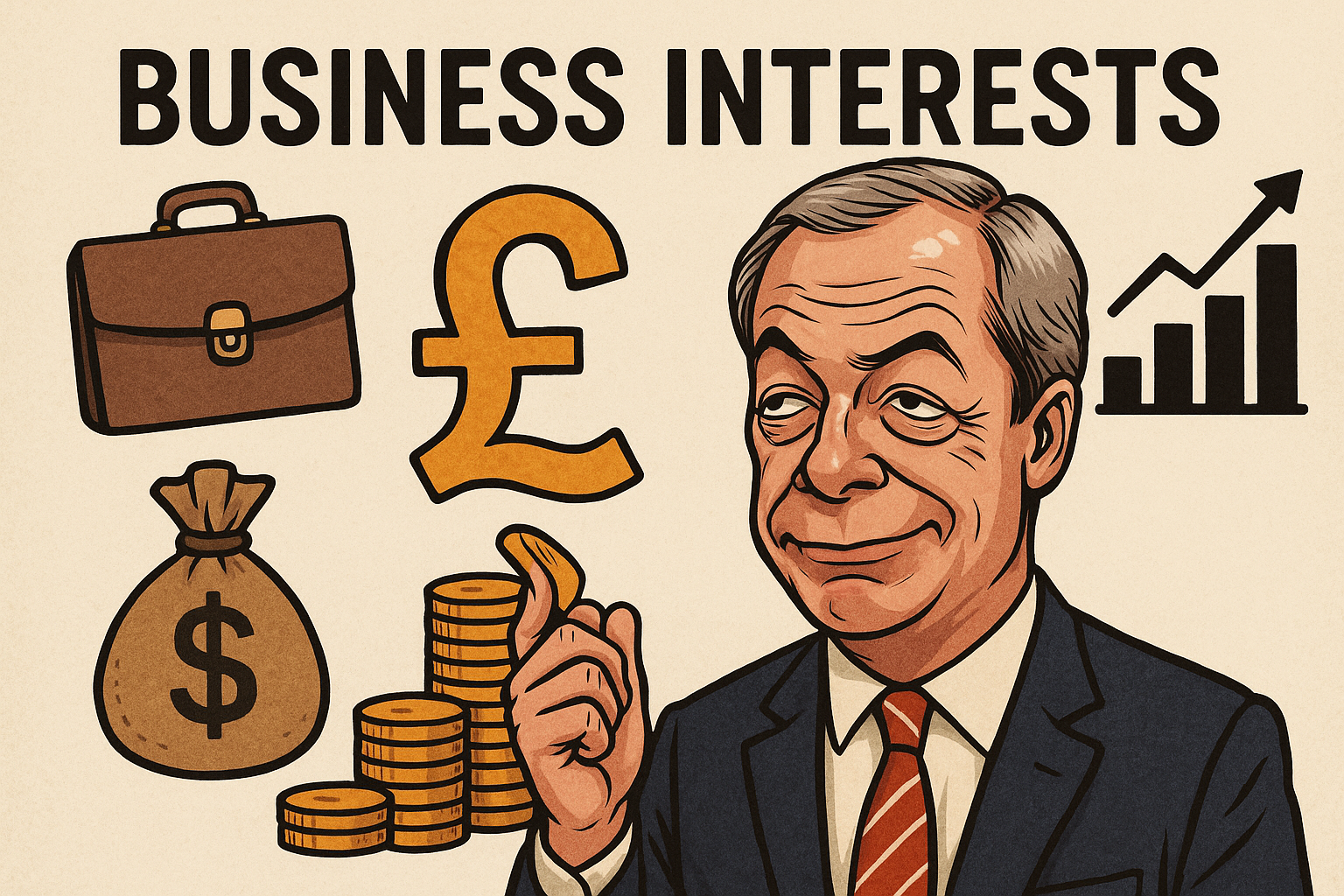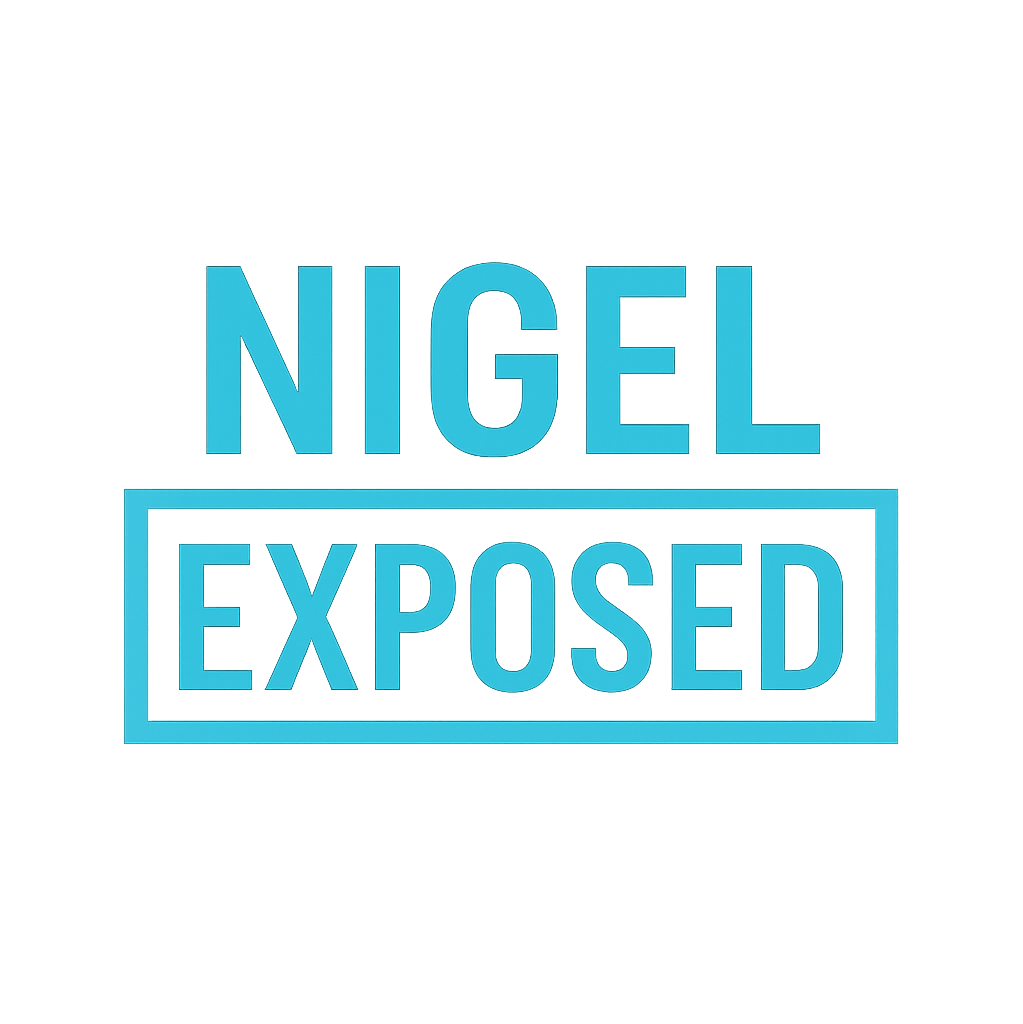
Business Interests
Nigel Farage claims to fight for ordinary Britons, but his financial history tells a very different story. Over the course of his career, Farage has benefited from offshore arrangements, donor secrecy, political profiteering, and foreign-linked financial interests. His brand of populism is built not on sacrifice or service, but on money, access, and evasion.
Farage’s City Career and Foundation of Wealth
Before becoming a politician, Farage worked as a commodities trader in the City of London. He built wealth during the deregulated boom years of the 1980s and early 1990s, working for firms like Drexel Burnham Lambert and Refco. While he later positioned himself as anti-elite, Farage’s early income came directly from the financial class he now claims to oppose.
Farage has never released full details of his personal wealth or income sources. He has long resisted calls for transparency, including during his time as a Member of the European Parliament, when he was investigated over undeclared benefits and questioned about outside earnings.
Offshore Accounts and Money Trails
In 2017, it was reported that Nigel Farage was listed as a “person of interest” by the FBI during its Russia probe, in part due to concerns about financial flows and his connections to WikiLeaks and intermediaries close to the Kremlin. While he denied wrongdoing, Farage has remained silent on whether any of his media work or political campaigns were indirectly supported by foreign money.
In 2023, a whistleblower from an offshore trust linked to Farage’s associates revealed that he had been receiving payments routed through tax-advantaged accounts in the Isle of Man. Although Farage denied personal involvement, he refused to open his financial records to public scrutiny.
Undisclosed Donors and Dark Money
Farage’s political campaigns have benefited from anonymous or lightly regulated donors, including hedge fund managers and offshore firms. Reform UK, like the Brexit Party before it, has exploited loopholes in UK election law to avoid naming many of its backers.
In 2019, Channel 4 reported that Farage received lavish gifts and expenses from Arron Banks, including paid housing, travel, and staff. Banks was under investigation for his own financial conduct and links to Russian officials. Farage dismissed the reports as politically motivated but never offered a full accounting of the support.
Monetizing the Media Machine
After Brexit, Farage leveraged his fame into a series of paid media ventures. He hosted a talk show on LBC Radio, published columns, appeared regularly on GB News, and launched paid YouTube content and social media partnerships.
While claiming to be censored and silenced, Farage has used his media presence to generate steady income. He sells merchandise, books, and access through paid platforms while accusing others of profiting from politics.
His personal brand is a commercial operation. The image of a straight-talking, pint-sipping patriot is used to drive clicks, donations, and ad revenue. Behind the image is a calculated monetization strategy.
Farage’s Business Interests in 2025
As of 2025, Farage continues to draw income from Reform UK, speaking fees, private events, and media appearances. He has refused to disclose whether he receives foreign payments or consulting income. His recent election to Parliament has not led to increased transparency.
Calls for a full audit of Farage’s finances have grown as Reform UK gains influence, but no inquiry has yet materialized. Like many populist leaders, Farage positions himself as the voice of the people while refusing to answer basic financial questions.
Disclaimer
This profile is based on publicly available information from investigative journalism, parliamentary records, financial disclosures, and trusted news sources. Farage Exposed is an independent, non-commercial project created for public interest. Readers are encouraged to examine original sources and remain skeptical of all public figures who refuse transparency.
